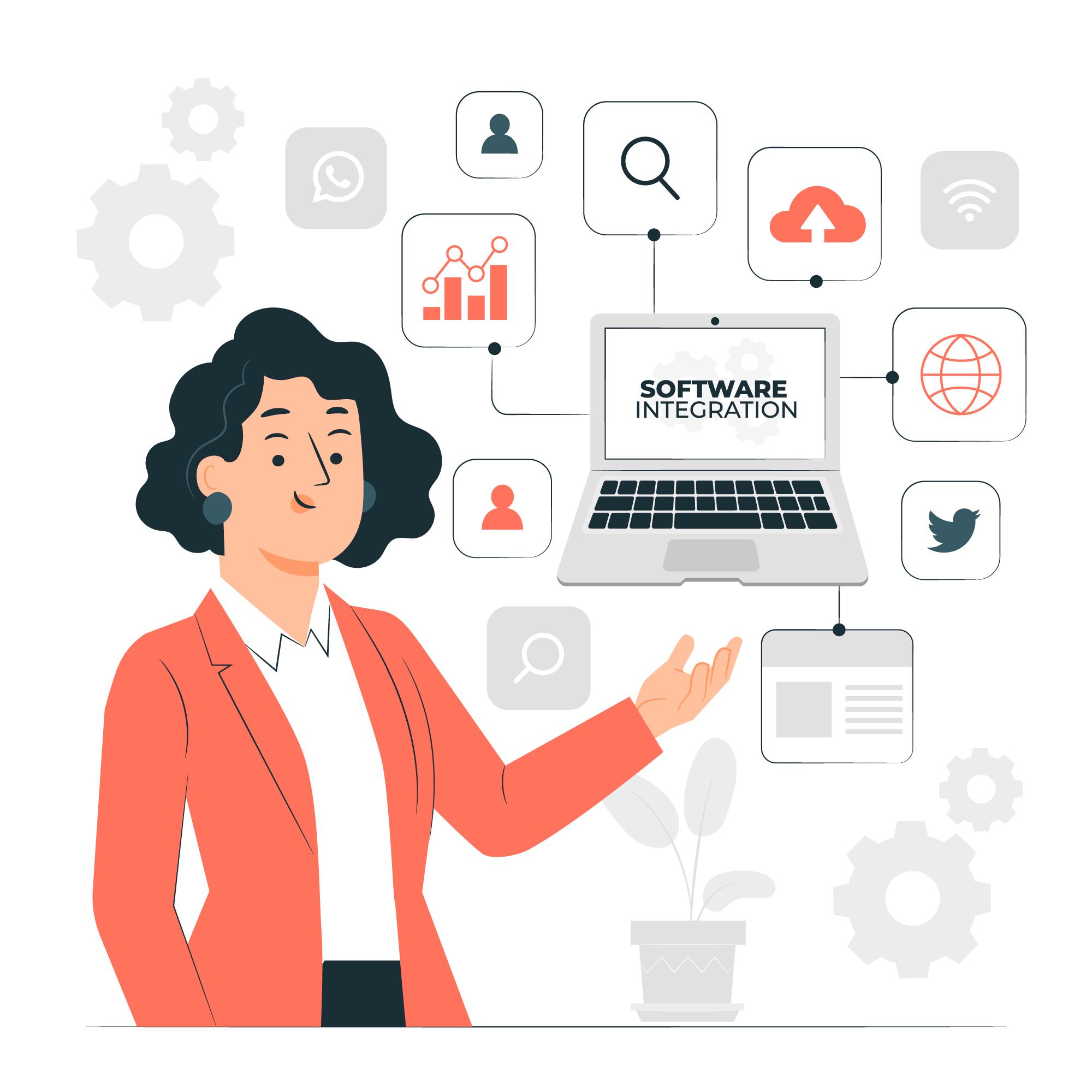In today’s fast-paced business environment, the ability to quickly and efficiently integrate applications, data, and processes is crucial for success. iPaaS Integration Services offer a powerful solution to this challenge, enabling organizations to seamlessly connect disparate systems and unlock the full potential of their data.
What are iPaaS Integration Services?
iPaaS, or Integration Platform as a Service, is a cloud-based solution that facilitates the integration of various applications and data sources. iPaaS Integration Services provide a centralized platform for connecting on-premises and cloud-based systems, automating workflows, and managing data across the enterprise.
Key features of iPaaS Integration Services include:
- Pre-built connectors for popular applications
- Drag-and-drop interface for easy integration design
- Real-time data synchronization and transformation
- Scalable architecture to support growing integration needs
- Robust security and compliance features
Top Benefits of Implementing iPaaS Integration Services
Implementing iPaaS (Integration Platform as a Service) Integration Services brings a wealth of advantages that can transform an organization’s operational landscape. Here’s an expanded examination of the key benefits:
Improved Scalability and Flexibility
iPaaS Integration Services are designed to grow with your business. As your integration needs expand—whether due to increased data volume, new applications, or evolving business processes—iPaaS platforms can easily accommodate these changes. This scalability is crucial for organizations aiming to future-proof their IT infrastructure. The flexibility of iPaaS allows businesses to quickly pivot in response to market demands, ensuring they remain competitive and agile in a dynamic environment.
Enhanced Efficiency and Productivity
By automating integration processes, iPaaS Integration Services eliminate repetitive manual tasks that can drain resources and time. Automation not only speeds up the integration process but also minimizes the risk of human error. Employees can redirect their focus from mundane tasks to strategic initiatives that drive innovation and growth. This shift in focus enhances overall productivity, as teams can work more collaboratively and effectively toward common goals.
Reduced Costs and Faster Time-to-Market
The cost-effectiveness of iPaaS Integration Services is a significant advantage for organizations. Traditional on-premises integration solutions often require substantial investments in hardware and software, along with ongoing maintenance costs. In contrast, iPaaS operates on a subscription basis, allowing businesses to pay only for what they use. This model reduces upfront costs and enables organizations to allocate resources more efficiently. Additionally, the speed at which iPaaS can facilitate integrations means that businesses can launch new products and services faster, capitalizing on market opportunities before competitors.
Centralized Data Management and Improved Data Quality
iPaaS Integration Services centralize data management, providing a single source of truth for all organizational data. This centralization enhances data quality by ensuring consistency and accuracy across various systems. With improved data quality, organizations can rely on their data for critical decision-making processes, leading to better business outcomes. Furthermore, centralized data management simplifies compliance with data governance regulations, as organizations can more easily track and manage data usage.
Streamlined Automation and Workflow Optimization
The automation capabilities of iPaaS Integration Services extend beyond simple data transfers. Organizations can automate complex workflows that involve multiple applications and processes. This streamlining reduces the need for manual intervention, which not only cuts down on errors but also enhances operational efficiency. By optimizing workflows, businesses can ensure that processes are executed consistently and reliably, leading to improved service delivery and customer satisfaction.
Increased Agility and Responsiveness to Market Changes
In today’s fast-paced business environment, agility is paramount. iPaaS Integration Services empower organizations to quickly adapt to changing market conditions and customer preferences. The ability to integrate new applications and data sources rapidly allows businesses to respond to opportunities and challenges with speed and precision. This responsiveness is vital for maintaining a competitive edge, as organizations that can pivot quickly are better positioned to meet customer needs and capitalize on emerging trends.
Enhanced Collaboration Across Departments
iPaaS Integration Services foster collaboration between different departments by providing a unified platform for data sharing and communication. When data flows seamlessly between departments—such as sales, marketing, finance, and operations—teams can work together more effectively. This collaboration leads to improved alignment on business objectives, as all departments have access to the same information and insights, facilitating coordinated efforts toward common goals.
Improved Customer Experience
With streamlined processes and better data management, organizations can enhance the customer experience significantly. iPaaS Integration Services enable businesses to provide timely and accurate information to customers, whether it’s through faster order processing, improved support services, or personalized marketing efforts. By leveraging integrated data, organizations can gain deeper insights into customer behavior and preferences, allowing them to tailor their offerings and improve customer satisfaction.
Use Cases for iPaaS Integration Services
iPaaS Integration Services have a wide range of applications across various industries and use cases:
- Integrating cloud-based applications: Connect SaaS applications like Salesforce, Microsoft Office 365, and Google Workspace for seamless data flow and collaboration.
- Connecting on-premises systems with cloud services: Integrate legacy on-premises systems with cloud-based applications for a hybrid integration approach.
- Enabling real-time data synchronization: Ensure that data is consistently updated across all connected systems, providing a single source of truth.
- Automating business processes and workflows: Streamline repetitive tasks and processes, such as order processing, invoicing, and customer onboarding.
Implementing iPaaS Integration Services
To successfully implement iPaaS Integration Services, consider the following steps:
- Assess your integration needs and requirements: Identify the applications, data sources, and processes that need to be integrated.
- Choose the right iPaaS provider and solution: Select a provider that offers the features, scalability, and support your organization requires.
- Develop an integration roadmap and strategy: Create a plan for implementing and managing integrations, including prioritizing projects and setting goals.
- Ensure successful deployment and adoption: Provide training and support to ensure that employees can effectively use the iPaaS Integration Services platform.
Best Practices for Maximizing the Benefits of iPaaS Integration Services
To get the most out of your iPaaS Integration Services investment, consider the following best practices:
- Prioritize data security and compliance: Ensure that your iPaaS Integration Services provider offers robust security features and maintains compliance with relevant regulations.
- Foster collaboration between IT and business teams: Encourage cross-functional collaboration to ensure that integration projects align with business objectives and user needs.
- Continuously monitor and optimize integrations: Regularly review and optimize integrations to ensure they are performing efficiently and meeting evolving business requirements.
- Leverage pre-built connectors and templates: Take advantage of pre-built connectors and templates to accelerate integration projects and reduce development time.
Conclusion
iPaaS Integration Services offer a powerful solution for organizations looking to streamline integration processes, improve efficiency, and unlock the full potential of their data. By implementing iPaaS Integration Services, businesses can enjoy improved scalability, reduced costs, and increased agility in today’s rapidly evolving digital landscape.



